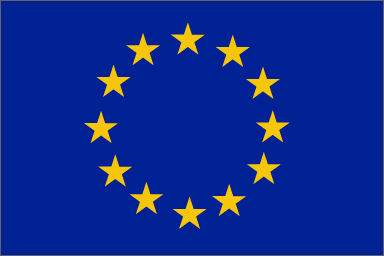UNIT 6 - European Union
 The
European Union was founded in 1957; it was then called the Common Market. The
UK did not join until 1973. It now has fifteen countries as members and a total
population of 370 million people. Another twelve countries wish to join. The
main ways in which the EU have affected British business are:
The
European Union was founded in 1957; it was then called the Common Market. The
UK did not join until 1973. It now has fifteen countries as members and a total
population of 370 million people. Another twelve countries wish to join. The
main ways in which the EU have affected British business are:
· Free trade between member countries – no tariffs
or quotas – has meant that British trade with Europe has increased from
30% before membership to 55% twenty years later. This has meant that it is easier
for British firms to export to Europe but it is also easier for European firms
to sell goods in Britain which could increase our imports.
· In agriculture the Common Agricultural Policy means
that the price that farmers are paid for their food is decided. Guaranteed farm
prices created overproduction of certain foods however – ‘butter
mountains and wine lakes’. As a result in the 1990’s the EU reduced
minimum prices for certain foods, gave diary farmers a quota which told them
how much they could produce and paid farmers not to grow some food crops.
· In fisheries the EU tells countries how much fish
it can catch to preserve fish stocks.
· Environmental protection - the EU has introduced
a wide range of laws to protect the environment – higher standards for
drinking water and beaches, a reduction in air pollution etc.
· Regional help – Poorer regions get help to
create jobs and improve the infrastructure through the REGIONAL DEVELOPMENT
FUND
· Travelling and working – people in EU countries
can travel freely and work in any member country
· Single currency – see
Euro
BACK | HOME
| NEXT
INDEX
 The
European Union was founded in 1957; it was then called the Common Market. The
UK did not join until 1973. It now has fifteen countries as members and a total
population of 370 million people. Another twelve countries wish to join. The
main ways in which the EU have affected British business are:
The
European Union was founded in 1957; it was then called the Common Market. The
UK did not join until 1973. It now has fifteen countries as members and a total
population of 370 million people. Another twelve countries wish to join. The
main ways in which the EU have affected British business are: